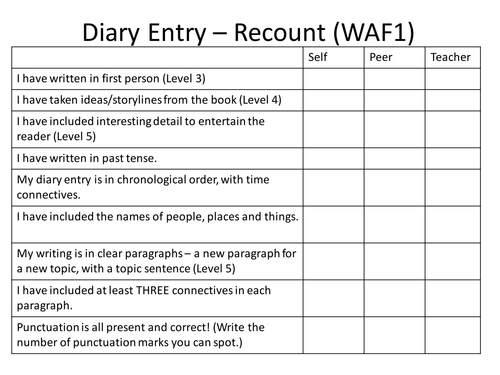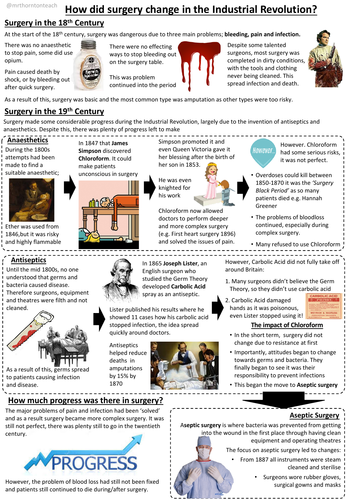Every now and then, big brother James will take a turn and read aloud to them. That's what I like about Sonlight: strong relationships are made stronger through reading together. James (13, Core F), Keturah and Elorah (6 and 5, P4/5 Multi-Subject) have been bonding together with Sonlight for four years.
Religion
- The Common Core Fourth Grade Mathematics exam, which your state uses to evaluate Common Core curriculum mastery, evaluates students on a number of math-related concepts that fourth graders should be proficient in, including multiplication, number values up to 1,000,000, adding and subtracting fractions, and more complex geometry.
- 3rd Grade Multiplication. 5x Groups of Objects. 5x Table Rhymes. 5x Skip Counting Song. Number Line Fractions. Sort Equivalent Fractions. 6x Table Rhymes.
- Spelling Exercises included with sentences based on the collection of Sight Words. You are limited only to 20 attempts without a subscription. 100 Fry Sight Words Lesson. 200 Fry Sight Words Lesson. 300 Fry Sight Words Lesson.

St. James–St. John School recognizes religious education as a lifelong process. The school’s program involves ongoing spiritual experience and formation, both individual and communal, for each stage of the student’s development. We educate for the heart, mind, and soul. The religion program includes doctrine, scripture, sacraments, and morality. Faith experiences include liturgies at school and at our church. We follow the guidelines of theCatechism of the Catholic Church. Students in Grades Preschool-8 attend Mass once a month.
Reading
The school’s reading program is multidimensional. It is a balanced approach that makes use of many kinds of literature to promote reading, writing, listening, and speaking. Phonics instruction is provided at appropriate grade levels. Through reading motivational programs and activities, students are encouraged to read for pleasure as well as for instructional purposes. Parents are encouraged to read with their children at least 20 minutes each day.
English
8bsthird Grade James Test Answers
English instruction focuses on the study of grammar, composition, oral language, listening skills, spelling, and penmanship, and also includes the acquisition of information literacy skills. It is an integrated program that uses whole language, phonics, and literaturebased instructional techniques and strategies. The reading program focuses on traditional or respected literature supplemented with expected independent reading. The middle school emphasis is on long and short fiction, poetry, speeches, drama, and other assorted non-fiction approaches to understanding.
Mathematics
The math program is based on the development of concepts and knowledge that helps the student reason and problem solve concrete problems that are age-level appropriate. Emphasis in the early years is placed on an understanding of the basic concepts of math and on understanding and knowing specific mathematical fundamentals. April . At the proper grade level, students are expected to have complete mastery of their times tables and other mathematical processes that are applied to the problem solving processes. Students advance their knowledge and application ability as they advance through the grades. In the middle school, pre-algebra is taught with a heavy concentration on geometry in 6th through 8th grades.
Science
Students are taught a balance of content and process skills in the areas of earth, physical, and life science. The program provides experiences that stimulate curiosity and imagination, develop thinking and logic skills, and nurture an appreciation and concern for our environment. The school also sponsors an annual science fair, participation in which may be voluntary or mandatory, depending on the grade level.

Social Studies
Social Studies provide students with the background necessary for becoming knowledgeable, productive, and responsible citizens. Students are given opportunities to practice thinking, problem solving, decision-making, and social skills. The social studies curriculum in grades 5-8 elaborates on the skills begun in the primary grades. The courses include world geography, ancient civilization, Massachusetts history, and United States history. The middle school history program will be heavily supported with lectures, notes, learning centers, and numerous approaches to understanding the importance of historical study.
Computer
Computer classes are based on the learning objectives specified by the Fall River Diocese curriculum. Topics include terminology, history, development, and applications. Youtube flv converter free download. Students learn basic word processing and spreadsheet applications. Computers are used for inclass assignments in the elementary and middle school grade level.
Physical Education
Within the personal abilities of each individual, students in the P.E. program should:
- attain maximum motor development, physical fitness, and well being
- attain desirable social growth; and
- utilize acquired movement and motor skills in worthwhile leisure activities.
Music
Students in Preschool- grade 3 will receive weekly instruction in musical theory, styles, and appreciation; they also learn songs for Mass, special school programs and personal enjoyment. In addition we also have a choir which meets after school for grades 4-8.
Art
Art develops awareness and sensitivity to natural and human-made environments, increases imaginative expression through the use of art materials, promotes an understanding and appreciation of self and others, and furthers aesthetic growth through visual discrimination.
The book of James contains a plethora of information for believers to become mature in their relationships to Christ. This series of five lessons will cover each chapter of James with the goal of outlining how we can become stronger in our faith. In part 1, “Strong and Wise,” there will be an emphasis on trusting God’s plan, persevering through difficulties, and obeying the bible. In addition, several opportunities for the teacher to share how God has worked in his or her life will bring the scripture to life for the children in a practical way.
TARGET AGES: 9-12
This lesson is part of our five unit study on the book of James for Older Elementary children. Use the following links to navigate to the other sections ONE — TWO — THREE — FOUR — FIVE — COLORING PAGE
OBJECTIVE: To introduce the book of James and discuss ways to become mature and wise Christ-followers.
MAIN IDEA: To become a strong and wise believer, we must trust God’s plan, persevere, and obey the bible.
SCRIPTURE PASSAGES: James 1:5-8, 12, & 22-25
MATERIAL(S): paper with typed/written questions, pencils, white board or poster board, craft pattern (attachment), yellow foam craft sheets, markers, stickers, glitter glue, single hole punch, twine or yarn
——————————————————————————————————————-
Introduction (10 minutes)
OPENING PRAYER: “God, help us become stronger and wiser as Christians so we may better serve you. Amen.”
OPENING ACTIVITY: Ask the children to choose a partner to read James 1 out loud with one another. Give each pair a question sheet and pencil. Then ask the children to answer the questions as they read:
- Who was James (a servant of God and Jesus)?
- Who is to blame for our sin (we are)?
- What does God consider to be “pure” religion (looking after those in need and keeping ourselves from being polluted by the world)?
Go over the answers together as a class. Then say, “We have already learned a little bit about James, chapter 1. As we study this entire book, we will learn how to behave and grow as Christ-followers by relying on God.”
Lesson (15 minutes)

8bsthird Grade James Test Prep
- Outline the history of the book’s author, James. Say, “This book was written by James, one of Jesus’ brothers. There were also two disciples named James, so it’s important to understand that it was Jesus’ brother who wrote this book and not one of the disciples.” Go on to explain that James was the lead pastor of the Jerusalem church, but it wasn’t until after Jesus had died and been resurrected that James became a believer. Ask, “Why do you think James didn’t believe in Jesus until after his resurrection (because they were siblings, so it must have seemed strange that Jesus was the Son of God)?” Explain that James’ book is about maturing as believers, so it gives us spiritual wisdom concerning everyday situations. Say, “Over the next five weeks we will look at each chapter in the book of James to discover how we can be ‘strong’ (mature) in our faith.”
- Read James 1:5-8. Help the children understand the main idea of these verses (if we ask God for wisdom, then we need to believe he will give it to us). Ask, “Has someone ever promised you something and then broken their promise? Well, part of becoming a strong believer means trusting that God doesn’t break his promises even though others do. We can rely on him as the source of true wisdom.” Looking back at verse 8, ask the children to pick out the descriptive words for someone who doubts God (double-minded, unstable). Point out that a spiritually wise person lives their life according to God’s ability to provide, and holds on to that assurance even during hard trials. Tell the class about a time when you trusted God for wisdom through a trial and how he remarkable provided for your needs.
- Read James 1:12. Ask, “What does it mean to persevere (to continue doing something even when it’s hard)? Trials and hard times will come to everyone, so it’s important to consider how we act during difficulties.” Ask the class to come up with common emotions during difficulties (trials) and write the suggestions on the board. Point out the emotions that can negatively affect our Christ-like influence on others. Admit that it’s normal to be frustrated during a trial, but a strong Christian will remember that it’s not an excuse for misbehavior – God will help us and give us peace during trials when we continually rely on him. Ask, “What will we receive when we successfully ‘[stand] the test’ of trials (the crown of life)? Who is promised that reward (those who love God)?” Tell the children that God allows trials in our lives to draw us closer to him and make us stronger and wiser as believers. Consider sharing with the class about a trial you are currently experiencing and how God is helping you.
- Lastly, discuss how James (like many other writers in the bible) uses analogies to help explain a topic. Say, “An analogy is when two things are compared so we can better understand the message. See if you can find the analogy in James 1:22-25.” Read the passage out loud and ask for a volunteer to point out the analogy (a person’s reflection in a mirror). Emphasize that knowing God’s word, yet disobeying it, is as silly as looking at your reflection in a mirror and forgetting what you look like! Comment, “We learn from these verses that a strong and wise believer will do what the bible says.” Complete the lesson by outlining the message of salvation for anyone who may not be a believer and allow time for questions.
“Crown of Life” Craft: (15 minutes) *Attachment*
To prepare, use the crown template (see directions) to draw and cut out a crown out of foam paper for each child. Then write, “Crown of Life” across the length of each crown. During class say, “James 1:12 tells us we will be rewarded with the crown of life for persevering through trials (a true sign of a strong believer). We are going to decorate our crowns as reminders of God’s rich rewards for those who trust and obey him.” Allow time for the children to decorate their crowns with markers, stickers, glitter glue, and other various craft supplies. Lastly, help them complete the craft by punching holes in each end and tying an appropriate length of twine so they may wear their crowns.
Conclusion (5 minutes)
RECAP: Becoming strong and wise in our faith requires trusting God’s plan, persevering through trials, and acting on our beliefs.
CLOSING PRAYER: “Lord, help us as we grow in faith. We trust that your word will make us stronger and wiser in our relationship to you. Amen.”
8bsthird Grade James Test

